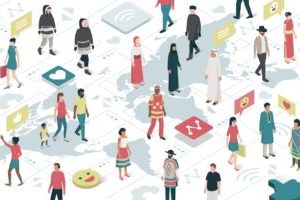From Mindful: “The ability to connect empathically with others—to feel with them, to care about their well-being, and to act with compassion—is critical to our lives, helping us to get along, work more effectively, and thrive as a society.
Most of [psychiatrist and researcher Helen] Riess’s research on empathy has focused on health care. Since doctors are confronted with suffering day in and day out, their situation is fitting for observing how empathy affects well-being. While doctors may think turning off their feelings and creating emotional distance helps them remain objective and provide better care, Riess’s research has shown that doing so makes patients distrustful, disgruntled, and less cooperative. And it makes for lonelier, less effective, and more burned-out physicians.
What should doctors—and the rest of us—do instead? Practice empathy, says Riess. Not only does being empathic improve health care, she argues, it also improves human interactions in general . . .
Empathy, she writes, involves an ability to perceive others’ feelings (and to recognize our own emotions), to imagine why someone might be feeling a certain way, and to have concern for their welfare. Once empathy is activated, compassionate action is the most logical response. . .
While Riess has mostly focused on doctor/patient relationships, her book is a plea to look beyond health care and imagine a world where empathy is infused into everyday life . . .
How well parents understand their children’s emotions, try to take their perspective, and affirm their worth is tied to how they do later in life.
‘When a child is not mirrored, he may give up trying to achieve his goals, or if he becomes a high-achiever, his accomplishments may give him little pleasure,’ she writes . . .
Riess describes other instances where empathy is crucial—for example, when we encounter people who are different from us, when we ourselves have made a mistake and need self-empathy, in our workplaces, and even within government . . .
The importance of empathy in everyday life cannot be oversold. By understanding how it works and can be augmented in ourselves and our children, we have one of the key tools to cultural transformation, Riess believes.”












